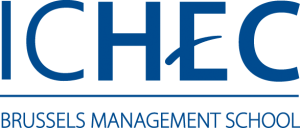 Marketing lecture for Erasmus In
Marketing lecture for Erasmus In
Q2 : Feb - June 2024
Written exam in June 24
OBJECTIVES
This course aims to enable future managers to establish, operate, and develop a successful non-profit business. The main objective is to help participants in understanding the current opportunities in developing non-profit business in local and international context. It explains how to cope with common managerial practices as applied to the non-profit sector, with a special focus on cultural entrepreneurship.
The objective is also to provide a comprehensive understanding of current economic policies as applied to non-profit activities, and how policies cope with budget constraints. Echoing the management side, the course enhances public policies as they apply to the cultural sector and cultural markets.
Since non-profit organisations have important impacts on their communities and territories, the course addresses impact from a holistic viewpoint. Therefore, non-profit Economics and Management course addresses how NPOs contribute to the social, economic, cultural and environmental development. Moreover, the illustrated case-studies during the entire course are related specifically to NPOs embracing sustainable development in their missions and operations.
In the first class, the concept, definition and contribution to the overall economy are explored, as well as how NPOs contribute to the SDGs.
In the second class, NPOs financing and accounting are discussed. Also, the Social Return On Investment (SROI) which is a framework for measuring and accounting a broader concept of value seeking to reduce inequality and environmental degradation while improving the wellbeing by incorporating social, environmental and economic costs and benefits is presented.
In the third class, NPOs human resources and management are explored. Since volunteers are a crucial pillar of NPOs, the global volunteer workforce and its contribution to SDGs achievements worldwide according to the UNV programme is discussed.
In the fourth class, the role of NPOs in marketing projects/products/services related to community development with particular focus on fair, local and sustainable development is presented. Many examples of NPOs operating in different fields and countries are provided.
In the fifth class, NPOs creativity and social innovation and how to reach out to impact investors who are interested in thriving societal impacts is addressed.
A Brussels based case-study is presented and students are expected to pitch solutions to its challenges.
Finally, Belgian guest lecturers from one leading Belgian NPO and one start-up NPO, present their missions and tackle their societal impacts and how they evaluate their contribution to the SDGs.
PREREQUISITES
Basic economics and management are prerequisites. Knowledge in macroeconomics and public economics, as in corporate strategy is recommended. The course is given in English, and participants are required to have an ability to read, listen, interact and write in English.
SPECIFIC OBJECTIVES IN TERMS OF KNOWLEDGE
At the end of the course, participants are expected to:
- Have knowledge of the principles in non-profit management;
- Understand the current issues in public policies;
- To gain an awareness of emerging trends in the non-profit sector, including social business and cultural entrepreneurship;
- Envision the opportunities of doing business in the non-profit sector.
SPECIFIC OBJECTIVES IN TERMS OF KNOW-HOW
Participants should be able to
- Apply managerial technique to practical non-profit situations;
- Find relevant indicators and data relative to the non-profit sector;
- Develop soft skills related to non-profit organisations daily operations;
METHODOLOGY AND DIDACTICAL AID
The course takes place in the curriculum of the Master program, as an elective course. Although most of the material will be available on ICHEC-Moodle. Information will be provided about requested or recommended readings.
Theory is based mainly on: MANAGING NONPROFIT ORGANIZATIONS, by Mary Tschirhart and Wolfgang Bielefeld, Jossey-Bass ed. (Wiley Imprint), 2012. At least one scientific article is also provided under each topic.
ASSIGNMENTS AND EVALUATION
Although Nonprofit economics and management will also include some lecture courses, most of the work will be organized as specific assignments, individual or group presentations. A final written paper and a final group presentation is part of the evaluation.
Final marks will be based on the following criteria:
(i) Course attendance and interaction 20 points
(ii) Assignments quality 30 points
(iii) Individual and collective oral presentations 15 points
(iv) Final report 35 points
Please note that attendance is compulsory, and the final mark will be adjusted to presence and active participation.
Time schedule will be divided into:
(i) Lecture courses addressed by the lecturer, and by some professional leaders from the field,
(ii) Presentations and discussions by the students,
(iii) Time devoted to individual learning (based on assignments for reading scientific papers on specific topics), preparation of the presentations, and writing of final document.
Assignments must be submitted on time on Moodle according to the scheduled deadline. For example, assignment n.1 should be submitted by 18/02/24 before midnight (23:59). For group assignment, the group spokesperson should upload the assignment for the entire group.
FINAL GROUP PRESENTATION AND PAPER
Groups of 4 students are expected to select a cultural Nonprofit entity. The group’s oral presentation should be based on a PPT-file to be submitted by the group spokesperson by 26 May 2024 at 23:59 on Moodle. Each group will have 10 minutes to deliver its pitch and will be followed by additional 5 minutes dedicated to Q&As.
The group final paper should be submitted by the group spokesperson by 10 June 2024 at 23:59 on Moodle.
The paper should be of 20 pages max. It should include: Background info about the NPO, Mission, values and objectives, Key stakeholders and beneficiaries, Services (programs and activities), Key figures (consolidated financial statement), Human resources (employees, volunteers and composition of the board, Outreach strategy, Level of innovation and a SWOT (Strength, Weaknesses, Opportunities & Threats) analysis.
